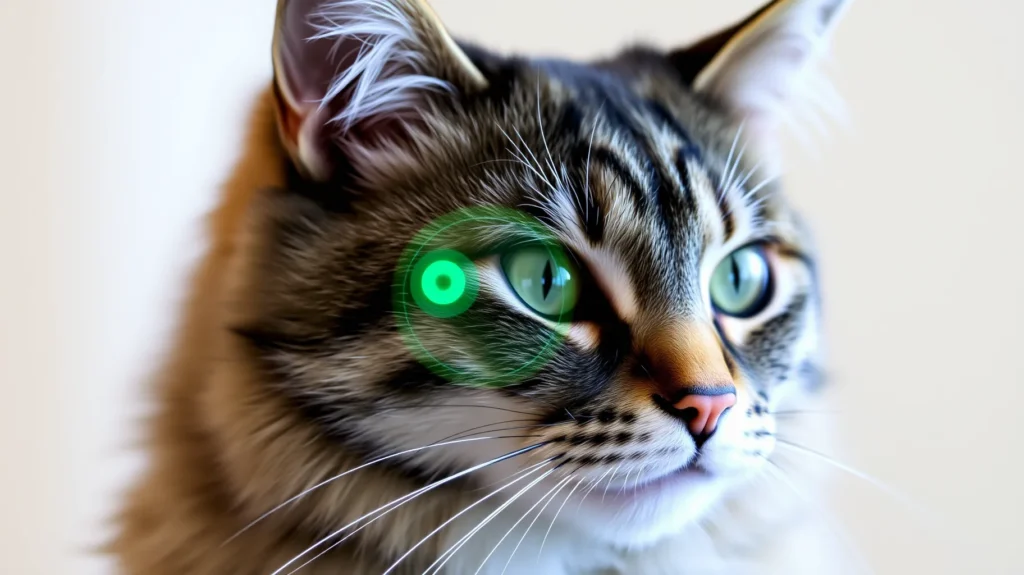
The Rise of AI in Pet Health: Why It Matters
Imagine your dog isn’t acting quite like themselves. Maybe their energy has dipped, or they’re just not as perky. Normally, you might chalk it up to a bad day or getting older, but what if technology could tell you that it’s something more? Enter AI-powered pet health trackers, the newest tools in proactive pet care. These devices can literally give your pet a voice when something’s wrong—without them having to bark, whine, or meow.
AI is no longer just a buzzword in tech or limited to self-driving cars and chatbots. It’s making real waves in pet health care. And here’s why it matters: animals often hide symptoms of illness until it’s serious. But with AI in the mix, diseases can be caught much earlier—saving time, money, and potentially, your pet’s life. It’s like having a mini-doctor for your furry friend at all times.
How AI-Powered Trackers Are Changing Pet Care
Pet care has come a long way. Back in the day, you would just feed your cat, take your dog for walks, and go to the vet once a year. Now? The game has changed. These AI-powered health trackers do more than just monitor steps or calories. They dig deeper into your pet’s health, analyzing everything from heart rate to breathing patterns.
Imagine a collar or a wearable device that continuously tracks your pet’s vitals, and—get this—actually alerts you if something’s off. Even subtle changes, things you wouldn’t notice in a daily routine, are picked up. It’s like a fitness tracker but on steroids for pet health. The magic here is the AI, which can predict issues long before they become full-blown health problems.
Early Detection: The Key to Healthier Pets
One of the biggest benefits of these AI trackers is early disease detection. We all know that the sooner a health issue is spotted, the better the outcome. This is true for us, and it’s certainly true for pets. AI algorithms don’t just look at today’s data. They compare day-to-day patterns and notice even minor shifts. These small signs might be invisible to the naked eye but could be a big deal to AI.
Say your cat’s sleep patterns change slightly, or your dog’s heart rate spikes without much activity. AI will flag these variations and notify you with an alert—allowing for a timely vet visit before things get worse. It’s peace of mind in a world where our pets can’t exactly tell us when something’s wrong.
What Can These Trackers Monitor?

So, what can these AI-powered health trackers actually monitor? Well, they’re pretty comprehensive. Some popular AI pet trackers focus on basics like activity levels and sleep patterns. However, more advanced devices are delving into health specifics, including:
- Heart rate and respiratory rates
- Body temperature
- Blood oxygen levels
- Stress levels
- Movement patterns
- Sleep quality and duration
The cool part is that they don’t just gather data. AI crunches the numbers, making connections that we, as humans, might miss. If a spike in heart rate always follows a restless night, the AI might suggest something’s going on—perhaps early signs of illness, even a hidden infection.
Understanding the Data: How AI Analyzes Pet Health
AI doesn’t just spit out numbers. It’s designed to interpret pet health trends over time. Think of it like a detective that never sleeps. The more data it collects, the smarter it becomes. For example, if your dog suddenly gets lazier, AI compares this with past activity levels and other metrics, like heart rate, to give you a full picture.
What makes this really game-changing? It’s the predictive power. AI learns from patterns, meaning it can potentially predict health risks before they even happen. If your pet’s vitals are heading in a risky direction, you’ll know right away, allowing you to take immediate action.
From Heart Rate to Sleep Patterns: Predicting Health Issues
AI-powered pet health trackers can monitor vital signs that offer clues to potential health problems. For instance, sudden changes in heart rate or irregular respiratory rates may indicate a looming illness or infection. These trackers can alert you to early warning signs, allowing for early intervention. A decline in sleep quality might seem like a small issue, but it could be a signal of deeper health problems, such as pain or anxiety.
Tracking your pet’s sleep and activity patterns can also detect more subtle changes that might be hard for humans to notice. If your pet is sleeping more than usual or seems more lethargic, AI can flag these issues before they become severe.
Common Diseases Detected Early by AI Devices
Thanks to sophisticated algorithms, these AI-powered pet trackers are capable of identifying some common diseases early on. For example, irregular heart rate patterns might indicate heart disease, while inconsistent sleep patterns could hint at conditions like arthritis or kidney disease.
Other potential early detection signs include changes in mobility, which might signal joint problems or early arthritis. In more extreme cases, the blood oxygen or temperature readings could flag respiratory infections or other inflammatory conditions before visible symptoms appear.
The Science Behind Predictive Algorithms
At the core of these devices is the AI predictive algorithm. It’s not just about collecting data; it’s about drawing conclusions from it. These algorithms are trained on massive datasets—millions of pieces of pet health information. As a result, they’ve “learned” to recognize patterns that indicate early disease markers.
If the data suggests your pet’s health is veering off-course, the AI will flag it and give you a heads-up. The beauty is that it gets smarter the more it works. The more health trends it sees, the better it gets at spotting something wrong. So, in a way, it’s a self-learning health expert in your pet’s collar.
Real-Time Alerts: How They Help Pet Owners

Real-time alerts are one of the most practical benefits of these AI-powered trackers. Instead of waiting for your pet to show visible symptoms, you get an instant notification when the AI detects something off. Whether it’s a sudden spike in body temperature, a drop in activity, or erratic heart rate, these alerts can save you from a potential emergency.
And let’s face it: life is busy! It’s easy to miss signs that something’s wrong with your pet. With AI doing the heavy lifting, it watches over your pet when you’re not paying attention, sending alerts directly to your phone.
Veterinarian Support: Bridging Technology and Expertise
While AI-powered pet health trackers are incredibly useful, they aren’t a replacement for professional veterinary care. Instead, they’re a bridge between technology and expert advice. Think of them as your first line of defense, catching subtle shifts in your pet’s health that even the most attentive pet owners might overlook. But once the AI raises a red flag, you’ll still need a trusted vet to interpret the data in the context of a full examination.
Most AI trackers offer options to sync data with your vet’s system or allow you to easily share vital stats during appointments. This way, your vet can track patterns over time, providing a more comprehensive approach to diagnosing and treating potential health problems. It’s like giving your vet an inside scoop, so they have more information at their fingertips when assessing your pet.
The Cost of AI-Powered Health Trackers: Is It Worth It?
One question a lot of pet owners ask is, “Are these AI-powered health trackers worth the price?” To be fair, they’re not the cheapest gadgets on the market. Some high-end models can set you back a few hundred dollars, while basic ones may cost around $100. However, when you weigh that against the cost of emergency vet visits, medication, or even long-term treatment plans, it starts to make a lot more sense.
Early detection can save you hundreds, if not thousands, of dollars in healthcare costs by preventing minor issues from snowballing into major crises. Plus, the peace of mind these trackers provide is hard to put a price on. Knowing your pet is being monitored 24/7 and receiving real-time alerts can reduce the stress of “What if something’s wrong and I don’t know?” moments that all pet owners face.
Limitations and Challenges of AI in Pet Health Monitoring
Of course, as revolutionary as these devices are, they’re not perfect. AI-powered health trackers have their limitations. For one, they can’t always differentiate between minor, temporary fluctuations and serious health issues. For example, a pet’s heart rate might spike simply because they’re excited, not because they’re ill. This could lead to false alarms or unnecessary vet visits.
Also, the technology is still evolving. While the algorithms continue to improve, there’s always the possibility that AI could miss something important or misinterpret a trend. Data accuracy depends on the quality of the device, so investing in a reliable brand is crucial. And remember, these trackers only provide data—they don’t diagnose. You’ll still need to consult your vet for a professional opinion.
Future of AI in Pet Care: What’s Next?
The future of AI in pet care is full of exciting possibilities. As the technology develops, we could see trackers that do more than just monitor vital signs. Imagine a device that could automatically dispense medicine when needed or even administer a calming spray during periods of anxiety.
AI may also play a role in behavioral analysis, predicting not only health problems but also emotional issues. By analyzing patterns of movement, vocalizations, and interactions, future AI systems might help pet owners better understand their pet’s emotional well-being and reduce stress or aggression.
Moreover, AI advancements could lead to more personalized pet care plans, tailoring recommendations for diet, exercise, and preventive measures based on your pet’s unique health profile. This could turn reactive care into proactive, long-term wellness management.
How to Choose the Right AI Pet Health Tracker

With so many options on the market, choosing the right AI-powered health tracker can feel overwhelming. But it doesn’t have to be. Start by considering what you want to monitor. Do you just need to track activity and sleep, or are you looking for more advanced health metrics like heart rate and temperature?
Next, think about compatibility. Does the device sync with an app you can easily access on your phone? Does it allow for sharing data with your vet? Consider how detailed you want the data reports to be and whether you’re comfortable interpreting them on your own or if you’d prefer more simplified insights.
Lastly, don’t forget about comfort and design. The tracker should be lightweight and not cause any discomfort for your pet. A sleek, durable design is essential, especially for active pets that love to run, jump, and explore.
Stories of Success: Pets Saved by Early Detection
The real proof of these devices’ effectiveness comes from the stories of pets who have been saved by early detection. One such example is the case of a dog named Bella. Bella’s AI tracker flagged a sudden drop in her activity levels and an increase in her heart rate. At first, her owner thought it was just a lazy day. But the next morning, the tracker sent an alert, suggesting Bella might be unwell.
After rushing to the vet, it was discovered that Bella had a developing heart condition, something that might not have been caught for weeks, possibly even months. Early intervention allowed for immediate treatment, and Bella is now on a health management plan that’s improved her quality of life.
Another success story involved a cat named Max. His tracker identified abnormal sleeping patterns and increased stress levels, leading to an early diagnosis of feline arthritis. With the help of the data, Max’s owner was able to make changes to his diet and activity plan, significantly reducing his discomfort.
Ethical Considerations in AI-Powered Pet Health
As with any emerging technology, there are ethical questions surrounding the use of AI in pet care. One concern is data privacy. Many of these devices collect a vast amount of information about your pet, and that data could potentially be shared or sold to third parties. It’s important to read the privacy policies of these devices and make sure you’re comfortable with how your data is being used.
Another ethical issue is over-reliance on technology. While AI-powered health trackers are incredibly helpful, they shouldn’t replace the human intuition and care that come from building a relationship with your pet. It’s vital to maintain balance—using AI to enhance care, not as a total substitute for your own observations and the expertise of a veterinarian.
The Human-Pet Bond: How AI Is Strengthening It
Ironically, while AI seems like a cold, technical tool, it’s actually helping to strengthen the human-pet bond. By keeping a close eye on our pet’s health, we’re able to be more responsive and attentive to their needs. The insights provided by AI-powered health trackers allow pet owners to feel more connected and in-tune with their furry friends’ well-being.
Ultimately, these devices can reduce the anxiety and uncertainty that often come with pet ownership, letting you focus more on enjoying your time together. Whether it’s catching an illness early, understanding a change in behavior, or simply ensuring your pet stays as healthy as possible, AI is providing tools that let us be better caretakers, and in turn, strengthen our bond with our beloved animals.
Conclusion: AI-Powered Trackers are Revolutionizing Pet Health
As technology continues to evolve, AI-powered pet health trackers are quickly becoming an invaluable tool for pet owners. They offer insights into our pets’ well-being that we might otherwise miss, giving us the power to act quickly when it matters most. The ability to monitor vital signs, predict potential health problems, and receive real-time alerts could mean the difference between a simple vet visit and a medical emergency.
While these devices are not without their limitations, they represent an exciting future in pet care. From early disease detection to long-term health monitoring, AI is transforming how we care for our furry friends, ensuring they live longer, healthier, and happier lives. The peace of mind that comes with knowing your pet is constantly being monitored—whether they’re snoozing on the couch or racing around the yard—is priceless.
In the end, these devices may not be able to give your pet the gift of speech, but they can provide the next best thing: a way to listen to their health, catch problems early, and take action before it’s too late. With the right AI-powered tracker, you’ll have a partner in caring for your pet—one that’s always watching, always learning, and always working to keep your furry friend in tip-top shape.
FAQs About AI-Powered Pet Health Trackers
What exactly is an AI-powered pet health tracker?
An AI-powered pet health tracker is a device, often in the form of a collar or wearable gadget, that monitors various health metrics of your pet. Using artificial intelligence, these devices analyze data such as heart rate, activity levels, respiratory patterns, and sleep, predicting potential health issues before symptoms become visible.
How does AI help predict diseases in pets?
AI algorithms are trained to recognize patterns from vast amounts of data. By continuously monitoring your pet’s vitals and behavior, AI detects subtle changes that may indicate health problems. Over time, it learns your pet’s normal routines and flags abnormalities, allowing for early disease detection.
Which health metrics can AI trackers monitor?
Common metrics monitored by these devices include:
- Heart rate
- Respiratory rate
- Sleep quality and patterns
- Activity levels
- Body temperature
- Blood oxygen levels
- Stress levels
Some more advanced trackers can monitor caloric intake and even detect environmental factors like air quality.
What kind of diseases can be detected early by AI trackers?
AI-powered pet health trackers can identify early signs of several diseases, including:
- Heart disease (irregular heart rate)
- Arthritis (decreased mobility and abnormal movement)
- Kidney disease (changes in sleep or stress levels)
- Respiratory infections (abnormal respiratory rates or temperature fluctuations)
- Anxiety and other behavioral health issues
Do AI pet health trackers replace regular vet visits?
No, these devices don’t replace regular vet check-ups. Instead, they complement them by providing real-time data that you can share with your veterinarian. This extra information allows for more informed decisions and potentially quicker diagnoses, but professional veterinary care is still essential.
How accurate are AI-powered pet health trackers?
Accuracy depends on the quality of the device and the AI’s training data. Most well-reviewed trackers are reliable, but like all technology, they’re not perfect. Some may give false positives (flagging non-issues) or miss minor issues that don’t fit typical patterns. That’s why it’s important to consult a vet if something seems off.
Can AI trackers be used for all types of pets?
Most AI pet health trackers are designed for common pets like dogs and cats. However, as technology evolves, we might see devices for other pets like rabbits, birds, or even reptiles. Always check the manufacturer’s recommendations to ensure the tracker is suitable for your pet’s species, breed, and size.
How do I receive alerts from the tracker?
Typically, AI-powered health trackers are connected to a smartphone app. Once the AI detects an issue or abnormal trend, it sends an alert directly to your phone. You’ll receive notifications that may recommend further action, such as visiting a vet or observing your pet more closely.
Are these trackers comfortable for pets to wear?
Most AI health trackers are designed with comfort in mind. They’re lightweight and adjustable, ensuring your pet can wear them without discomfort. However, it’s important to choose a tracker appropriate for your pet’s size and activity level. Regularly check the fit to avoid irritation.
How much do AI pet health trackers cost?
Prices can vary widely depending on the features and brand. Basic models may start at around $100, while more advanced trackers that monitor heart rate, respiratory patterns, and temperature can cost upwards of $300 or more. Some devices may also come with monthly subscriptions for data storage and advanced features.
Can I share the data with my vet?
Yes, most AI pet health trackers have features that allow you to easily share data with your veterinarian. You can either provide them access to your pet’s data through the app or download reports to bring to vet appointments. This helps your vet make more informed decisions based on long-term trends.
How often should I replace the tracker or upgrade it?
Most AI-powered pet health trackers are durable and don’t need frequent replacements. However, it’s important to keep an eye on battery life, software updates, and hardware wear and tear. Depending on the model, you may need to replace the tracker every 2-3 years to keep up with advancing technology or battery degradation.
Are there any privacy concerns with AI pet health trackers?
Yes, as with any tech device that collects data, privacy concerns can arise. Most devices collect a significant amount of information about your pet, and that data could potentially be shared or sold to third parties. It’s important to read the privacy policies of the product you choose, and ensure that data won’t be sold or shared with third parties without your consent.
How do I know which AI pet tracker is right for my pet?
To choose the right tracker, consider:
- What health metrics you want to track (basic activity vs. advanced vitals)
- The comfort and size of the device for your pet
- App compatibility and ease of use
- Data-sharing options with your vet
- Cost and subscription fees
- Battery life and durability
Reading reviews and talking to other pet owners or your vet can also help you make a more informed choice.
Can AI trackers improve my pet’s quality of life?
Absolutely. By enabling early disease detection, helping manage chronic conditions, and providing insights into behavior and activity, these trackers can improve your pet’s quality of life. They allow you to take a more proactive approach to your pet’s health, catching issues early and potentially preventing larger problems down the road.
Are AI pet health trackers waterproof?
Most AI pet health trackers are designed to be waterproof or at least water-resistant, meaning they can handle splashes, rain, or even swims—important if you have an active dog that loves water! Always check the product specifications to confirm its level of water resistance.
By combining cutting-edge AI technology with pet care, these trackers give you a unique insight into your furry friend’s health, allowing you to stay one step ahead and ensure a long, healthy, and happy life for your pet!
Resources for Learning More About AI-Powered Pet Health Trackers
1. American Veterinary Medical Association (AVMA)
The AVMA provides valuable resources on the integration of technology in veterinary care. They also offer advice on how to interpret health data from pet trackers and work with your vet for the best outcomes.
Website: www.avma.org
2. PetMD
PetMD offers numerous articles on pet health and the growing role of AI in early disease detection. It’s a great place to find information on the benefits of tracking your pet’s vitals and how to choose the right device.
Website: www.petmd.com
3. VetStreet
VetStreet covers a variety of pet care topics, including the latest advancements in AI and pet technology. It also provides useful reviews and comparisons of AI-powered pet trackers to help you make an informed decision.
Website: www.vetstreet.com
4. Whistle (Pet Tracker Brand)
Whistle is one of the leading brands in AI-powered pet health trackers. Their website offers insights into how their devices work, what metrics they monitor, and customer testimonials on early disease detection.
Website: www.whistle.com
5. FitBark (Pet Health & Activity Monitor)
FitBark focuses on pet health monitoring with its wearable AI devices. Their blog and support center provide in-depth knowledge on how to use their tracker effectively and improve your pet’s overall health.
Website: www.fitbark.com
6. Rover.com
Rover.com, known for its pet-sitting services, also features educational articles about pet technology, including AI health trackers. Learn more about how to incorporate technology into your pet’s everyday care.
Website: www.rover.com
7. International Journal of Advanced Veterinary Science and Technology
For those interested in the scientific side, this journal publishes research papers on advancements in AI and machine learning in veterinary care, including real-world applications of health trackers for pets.
Website: www.ijavst.com
8. National Institutes of Health (NIH) – AI in Medicine
While primarily focused on human health, the NIH’s resources on AI in medicine offer insights into how AI algorithms are trained, which can also be applied to understanding how pet health trackers work.
Website: www.nih.gov
9. Wag! Pet Care Blog
Wag! offers articles on pet wellness, including the benefits of using AI-powered devices for pets. It’s a great resource for pet owners looking to stay up-to-date on the latest trends in pet tech and health management.
Website: www.wagwalking.com
10. Pet Insight Project
This project uses AI to study pet health trends, helping inform veterinarians and pet owners about emerging health patterns in pets. Their research and tools can provide valuable context for understanding your pet’s health data from trackers.
Website: www.petinsight.com
11. The Humane Society of the United States
The Humane Society provides education on responsible pet ownership, including advice on using technology to improve pet health. While not AI-specific, they offer useful insights on general pet wellness and care.
Website: www.humanesociety.org
12. Your Local Veterinarian
Don’t forget your local vet as a resource! Most vets are knowledgeable about AI-powered pet health trackers and can offer tailored recommendations based on your pet’s specific health needs. They can also help you interpret the data collected by the tracker.